Aquion Energy is the first company in the world to commercialise a modern saltwater battery for residential, commercial and industrial applications. Aqueon’s aqueous hybrid ion (AHI) technology is one of the most exciting and promising energy storage technology options currently available in Australia, being non-combustible, non toxic and capable of 100% depth of discharge (DoD).
Solar Choice recently caught up with Matt Maroon, Aquion’s Vice President of Product Management, to gain more insight into this battery’s unique qualities and compelling value composition, as well as the company’s position in the battery storage market.
Important update: Aquion Energy has filed chapter 11 bankruptcy in the US and it is unclear when they will be manufacturing batteries again
Q. What is Aquion Energy’s story?
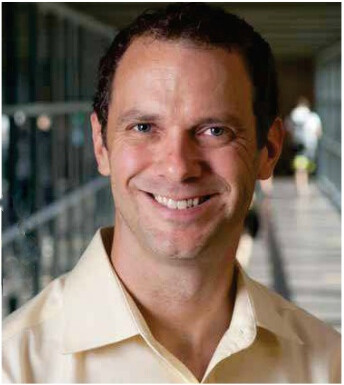 Aquion Energy was founded by Dr. Jay Whitacre, our CTO, after coming out of NASA’s Jet Propulsion Laboratories (JPL) as an expert in highly specialized energy storage. Jay’s goal in starting Aquion was to develop and commercialize low-cost, environmentally sustainable, and high performance energy storage specifically tailored to allow further deployment of renewable energy (wind and solar). Renewable energy is limited because it is inherently intermittent; low-cost, high performance energy storage is the enabler for further commercial deployment of renewable energy.
Aquion Energy was founded by Dr. Jay Whitacre, our CTO, after coming out of NASA’s Jet Propulsion Laboratories (JPL) as an expert in highly specialized energy storage. Jay’s goal in starting Aquion was to develop and commercialize low-cost, environmentally sustainable, and high performance energy storage specifically tailored to allow further deployment of renewable energy (wind and solar). Renewable energy is limited because it is inherently intermittent; low-cost, high performance energy storage is the enabler for further commercial deployment of renewable energy.
Coming out of NASA’s JPL, Jay joined Carnegie Mellon as a professor and in 2008 spun out the technology that became Aquion Energy. Several rounds of funding, many hundreds of challenges and solutions later and Aquion launched first prototypes in 2011 and first commercial product in 2014. The company has continued to refine technology and product design over the years and as of now (Q3 2015) produced, shipped, installed, and commissioned over 10 MWh of product in the marketplace.
Q. Which battery chemistries are the primary competitors with Aquion’s AHI batteries? Why?
Aquion Energy’s Aqueous Hybrid Ion (AHI) battery chemistry competes primarily with both lead acid batteries and lithium ion chemistry. We are focused on off-grid, microgrid, and customer side of the meter applications today so the competition are many of the typical names in the industry – Rolls Battery, EnerSys, and Hoppeke from the lead acid segment; Samsung, LG Chem, and even Tesla in the lithium ion arena.
The reason we compete with these chemistries is simple – lead acid is inexpensive, but poor performing; lithium ion has better performance, is a “sexy” technology, but has cost and safety concerns. Aquion fits somewhere in the middle. The AHI chemistry is inherently safe and, while still relatively new in the marketplace, competes with lead acid on a cost standpoint.
Q. Where are the biggest markets for Aquion at the moment?
Aquion is focused on three primary markets at the moment: residential on-and-off grid; microgrids; and commercial/industrial behind-the-meter-applications. Our product has strong sustainability characteristics: Aquion is the only certified Cradle to Cradle energy storage product on the marketplace. The AHI chemistry is engineered to be optimized for long duration applications – charging off solar during the day, and supporting electrical loads all night long. This makes the AHI chemistry the perfect product for environmentally conscious segment of the population that is looking for clean technologies to both reduce their carbon footprint and their monthly electricity bill.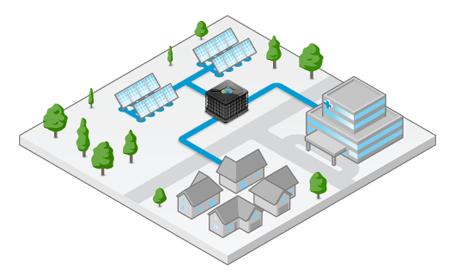
Mockup of Aquion’s AHI batteries in a microgrid. (Image via Aqueon.)
Q. What kinds households do you imagine would get the most out of Aquion’s batteries?
When we look to Australia, the perfect customer is someone that is sitting on the fringe of the grid and can save themselves both money and anxiety each month (from power outages) by disconnecting from the grid and moving to solar-plus-storage as their primary source of power. Our typical customers are conscious of both the environment and safety – two of AHI’s primary competitive advantages in the marketplace.
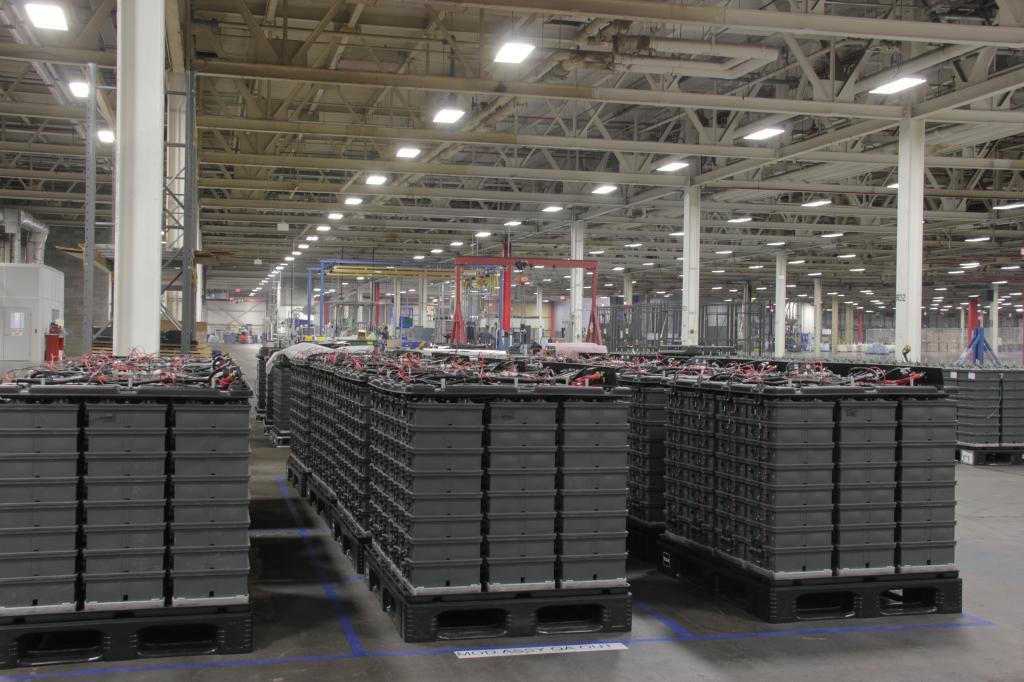 Aquion’s Westmoreland Manufacturing Plant. (Image via Aquion Energy.)
Aquion’s Westmoreland Manufacturing Plant. (Image via Aquion Energy.)
Q. Where do Aquion’s batteries sit on the price and quality spectrum?
With respect to price, Aquion is competitive today with lead acid technologies if you compare on a life-basis. That is, most lead acid batteries cycle between 500 and 1500 cycles which means that you would need to replace a lead acid batter system from 2 to 6 times more than you would need to replace an Aquion system. While lead acid might be cheaper on day 1 it certainly will not be cheaper over the life of the system. Lithium Ion batteries are more expensive than AHI when one considers the safety, fire suppression, and management that is required for this chemistry.
With respect to quality, Aquion manufactures its products in an automated manufacturing facility with state of the art quality checks at every stage of the manufacturing process. Aquion is committed to shipping quality product from its facility and our track record speaks to this commitment to quality.
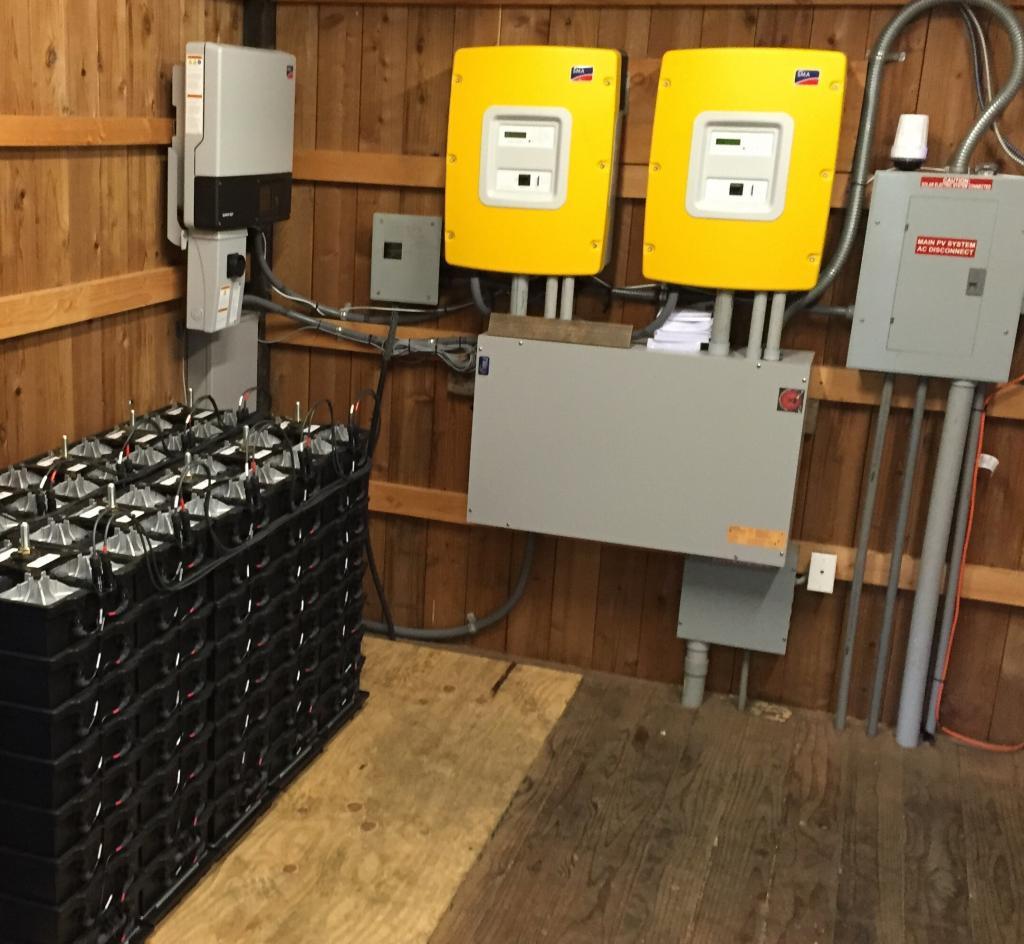 Deployment of a 20kWh Aquion system for Redwood Gate Ranch in California. (Image via Aquion Energy.)
Deployment of a 20kWh Aquion system for Redwood Gate Ranch in California. (Image via Aquion Energy.)
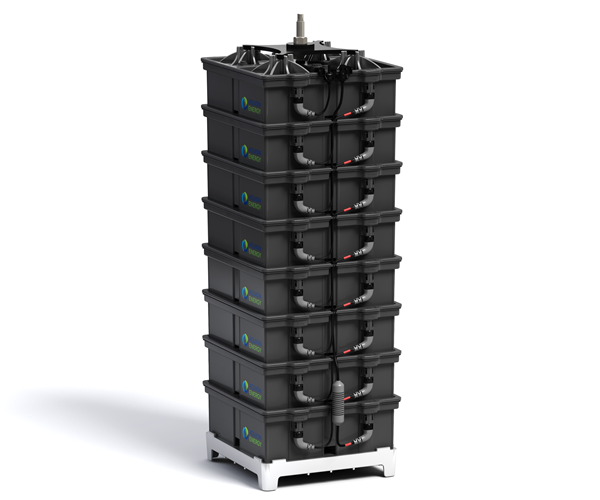 Q. What is the most popular application of your batteries so far? What segment is growing fastest?
Q. What is the most popular application of your batteries so far? What segment is growing fastest?
Aquion is currently selling in microgrid, off-grid, and fringe of grid applications for both residential and commercial & industrial applications (behind the meter). A majority of our customers are looking to go off grid or to maximize their self-consumption of PV. I would say that is the segment growing the fastest for us – the off-grid market as well as grid-connected customers who are interested going off-grid.
Q. What features and certifications should a household look for in an energy storage system?
Certainly evidence of a safe electrochemical system including any certifications of sustainability (like Cradle to Cradle). Additionally, customers need to be cognizant of the total system price and complexity as well. For example, while lead acid batteries might be cheaper, the total system price when sized for cycles, wiring, secondary containment, and so on, is often higher than AHI.
Q. In what parts of Australia do you see energy storage taking off first? Where is there the most potential for rapid growth?
We’ve written this blog article which I think is a really good reference answer for this question (and also happens to be Mad Max-themed!) In a nutshell, the case for installing batteries is already compelling in off-grid and fringe-of grid locations.
Q. About how many megawatts-hours (MWh) of Aquion AHI batteries are installed globally? In Australia?
So far there are over 10MWh of Aquion batteries that have been shipped and installed on every continent of the world. To date we have shipped over 2MWh to Australia.
Q. What is Aquion’s manufacturing capacity?
Currently Aquion Energy has an automated manufacturing line that is capable of producing over 200MWh annually. Our manufacturing facility has the footprint for 5 of these automated lines.
Q. What does the future hold for Aquion?
While we don’t give forward projections on manufacturing capacity or sales, we can say we’re aiming to more than double our production and sales this next year.
Important update: Aquion Energy has filed chapter 11 bankruptcy in the US and it is unclear when they will be manufacturing batteries again
© 2015 Solar Choice Pty Ltd
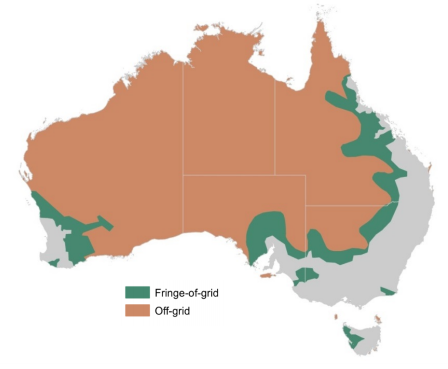
hi I don’t really know where else to look for, for this question so hope you can help anyway I have installed the aquion battery to a Sungrow hybrid inverter but during the day the inverter transfers the batteries to the house when there is not enough solar but at 7pm it doesn’t even use the batteries as it is meant to and ive installed 2 X S30 aquion batteries.
I do hope you can help thanks
Hi Andrew,
Unfortunately Aquion Energy has filed for bankruptcy, so it’s probably not possible to get support directly from them anymore. In any case, looks like the inverter might be the culprit in your case as it’s the inverter that has to ‘know’ when to draw on the batteries – have you contacted Sungrow?
Hi
I am soon erecting a steel shed on which to place a solar system to power both house and shed. I am on the grid with Click Energy who pay 10c per kw solar feed in. It is a 3 bed house, 2 occupants, studio, large fridge freezer, projector, mostly led lights, water pump, washing machine, dryer and dishwasher. What size system would I need?
If I go one size up for good measure in case we increase our family size, what is the cost for installation?
The house is 45 metres away from the shed. There is a cable underground joining the two of the recommended size to carry the power from shed back to house.
I wish to use aqueous batteries only.
Am I eligible for the full government rebate?
Regards Niki Brand
Hi Niki,
Thanks for the comment. We’re a comparison & advice service and don’t ordinarily give detailed advice on system sizing (although we sometimes give rough guidelines), but we can recommend that you get in touch with some installers in our network who will be able to help you out in more detail – simply fill out the Quote Comparison Request form to the right of this page (choose ‘Solar Energy’, which will include quotes for both solar and batteries.)
Best of luck!
Hello is it any way you could help me I already have a 6.5 kW solar system on the roof of my home I live in south Wales are United Kingdom and I’m looking for a 10 to 12 kW storage system if possible and if you can send me a approved installer of your systems in south Wales and a rough price for the above system for residential use off grid. I’d appreciate it if you can send me a Email with an approved supplier of your product and installer and the rough price thank you very much Wayne Davies of South Wales United Kingdom.
Hi Wayne,
Unfortunately we operate only in Australia – I’d advise that you get in touch with Aquion directly (they are based in the USA).
Best of luck with your battery storage project!
Hi, How do the Aquions go on a grid connect hybrid inverter like a Goodwe 5kw hybrid or a SunGrow 5kw hybrid ? The Aquions seem to like slow/low charge and discharge currents.
Hi Tom,
I’ve reached out to Aquion directly and they’ve responded to your query as below:
Yes, Aquion batteries – just like lithium ion or lead acid, can be used in a grid tied installation. While I’m not sure that we’ve done any installations with these two specific grid tied inverters, we have been integrating with over a dozen other off the shelf inverters. While Aquion’s AHI batteries are best suited for long duration charge / discharge cycles (charge off solar during the day, discharge at night), our batteries can be used in applications as fast as 4 hours. While we may not have the power capability of lithium ion or lead acid, our products offer a level of safety (using non-toxic, non-caustic, and non-flammable materials) and sustainability that are as important for some customers in grid tied applications.
Most hybrid inverters have the ability to set the maximum current and voltage for battery charging and discharging. Given that a hybrid system can still draw power from the grid in combination with battery power, it’s possible to configure the desired inverter battery power and then deal with any further loads using the grid. This way the set up of the Aquion batteries can be optimised for either solar self use or peak shaving.
Hope this helps!
Hi,
When speaking of 5 years of warranty and 3 prorata, what is the depth of discharge that was used in order to guarantee this time of use.
Do we speak about 50 % of discharge or 100 % as these batteries seems to accept unlike lead-acid (max 80 %) ? What kind of third party test was made to confirm these numbers as the company is quite young.
With my best regards
Laurent
Hi Laurent,
We’ve reached out to Aquion’s staff directly and have received the following answers to your questions from their sales chief here in Australia, Adam Champion.
When speaking of 5 years of warranty and 3 prorata, what is the depth of discharge that was used in order to guarantee this time of use.
The Aquion warranty statement is a time based warranty, regardless of depth of discharge. We are so confident in the robustness of the battery that we don’t specify this operation to a particular depth of discharge but it is designed for 100% DOD to be used in this way.
Do we speak about 50 % of discharge or 100 % as these batteries seems to accept unlike lead-acid (max 80 %) ? What kind of third party test was made to confirm these numbers as the company is quite young.
Aquion Energy does extensive in house cycle testing throughout the development and production process, but additionally we have test results verified by 3rd party test laboratories and certifiers such as DNV GL (Rochester, US), Black and Veatch and multiple University research departments (the original technology came from research work done at Carnegie Melon University). More than just “laboratory testing” , Aquion now has significant in field experience with over 15MWh of deployed batteries sold, ranging from small stack based residential installations to 1MWh micro grid power stations.
Hi,
Does Aquion make a 12 volt version of these batteries?
I’d be looking for about two sets of 200 A/h 12 volt batteries.
Regards
Michael Clark
Hi Michael. We’ve been in touch with Aquion’s team, who have responded as below:
Hi Michael, Aquion doesn’t currently produce a 12v version of the battery. It sounds like your system requirements are for 2x200Ah @ 12v = 4.8kWh of total storage capacity. This can be achieved with 2-3 stacks of Aquion depending on the time taken for charging and discharging. Note that all this capacity is usable unlike a lead acid equivalent, and the system would be at 48v. We have some units in the field that have been converted to 24v but currently this has only being done on a project by project basis.
Hope this helps!
CLARIFICATION
NB: Ampetus is only one of a select few Australian distributors that have been granted a license to sell Aquion batteries, and is NOT the only Victorian based distributor as this article would appear to suggest.
In Victoria alone, customers also have a choice of supply from
Fusion Power ph: 1300 911 365,
They also have offices in NSW, WA, SA, QLD
and also from Specialized Solar Solutions PL. http://www.specsolar.com.au
Specialized Solar Solutions, a division of multi Award Winning company Specialized Heating and Cooling PL, cover all of Victoria, with branches and managers covering all of Melbourne, Ballarat, Geelong and Bendigo, and are also licensed to market Aquion batteries in South Australia.
Head Office is : 1 Production Rd, Melton Vic 3337
Ph: 03 97437633 | 1300 669 397 | sales@specsolar.com.au
Thanks for the clarification, Frank.
I should also point out that anyone can see the full list of Aquion distributors in Australia (and elsewhere) using this map on the Aquion Energy website.
And to plug Solar Choice, you can also compare a range of battery options by filling out the Solar Quote Comparison request form to the right of this page.
Hi
Why does this battery have a guaranteed life of only 5 years?
What causes the battery to degrade over this time?
Glenn
Hi Glenn,
I’ve asked Aquion’s Matt Maroon (interviewed in the above article) to address your questions. Below are his responses:
> Why does this battery have a guaranteed life of only 5 years?
The Aquion battery carries a 5 year full warranty with an additional 3 year pro-rated warranty for 8 years of coverage in total. This warranty coverage has proven to give our customers confidence in installing the AHI battery and be assured that it will deliver a daily cycle for 8 or more years (equating to roughly 3,000 cycles in total).
> What causes the battery to degrade over this time?
As with any battery, there are various wear out mechanisms that happen at the chemical level. For the AHI chemistry, the degradation is related to the amount of energy charged / discharged throughout the life. So if your application only calls for 50% depth of discharge, the battery will last double than cycling at 100% DoD. As more and more kWh of energy are stored and released from the battery the structure of the active materials gradually wear, being able to store slightly less energy than before. Degradation is not catastrophic which means that this battery is much more robust than other alternatives.
dear sir,Iam very much interested in installing a standalone power storage system at my residence .I have got 5Kw solar system on the roof ,can you please send me some info. and price regarding battery and installation thanks .
Hi Vidya,
I will send you an email with the appropriate contact details.
Something is not quite right here. What explains the low sales volume to date?
With 200MWh annual manufacturing capacity Aquion has only sold 10MWh of their product so far.
Tesla got orders in the order of multiple GWh within a week of announcing their product. Obviously demand for battery storage in general is not the bottleneck.
Hi Peter,
I’ve reached out to Aquion directly with your comment. Here is the response I received from Matt Maroon, Aquion’s VP of Product Management (interviewed above):
As a new entry to the space, Aquion is taking a measured approach and deliberate pace selling into the market – avoiding the failures of so many other companies in various industries that try to run because they know how to walk (or crawl in some instances). Since this article was released, sales increased by over 50%, now having 15+ MWh worldwide. The market continues to be strong and Aquion continues to sell high quality product into Australia and worldwide.
I am trying to secure/purchase/install Batteries to my Solar Panels on my home roof. Here in Australia, is there someone you can put me in contact with who sells and fits these Batteries for use? Maybe there is reticence to install into homes where solar panels are in situ.? I will need Wind Generation for the Victorian Winter Weather also. Thank-you for your consideration. Deborah Duthie
HI Dev,
Thanks for the comment. These batteries are available in Australia – Ampetus is one of their key distributors, and I’m sure if you reach out to them they can help you find someone who can install them for you. Retrofitting them onto a home with a preexisting solar PV system should theoretically not be a problem.
As for wind generation, we are not specialists in that area so would recommend searching around the internet to find a company who will service your area.
Ampetus Energy – St Kilda, Victoria
Phone: 03 9507 2321
Email: info@ampetus.com.au